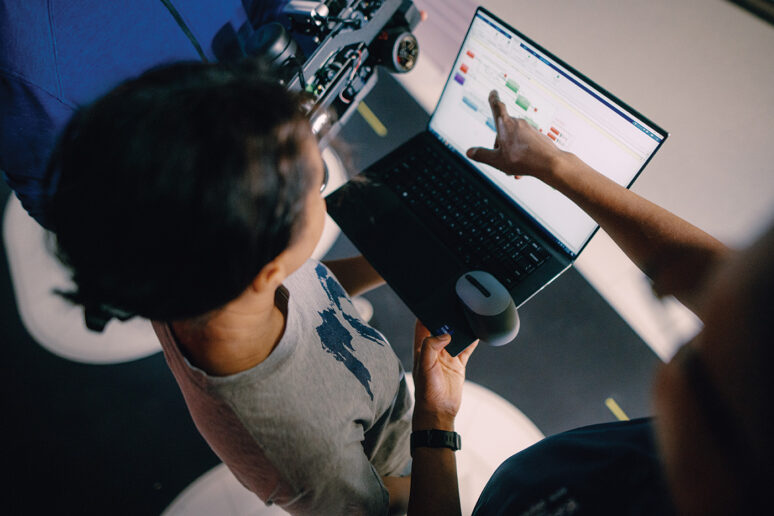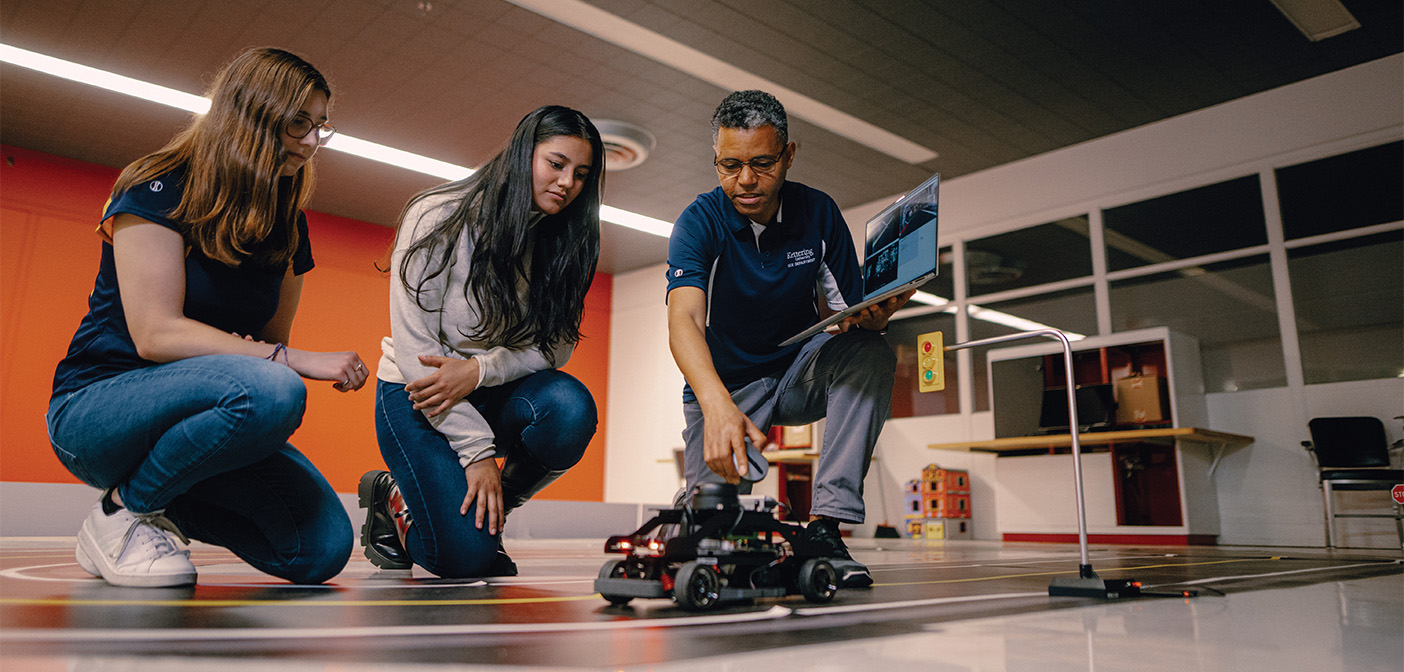In the spring of 2024, Kettering University hosted a remarkable seminar series on AI and Applications, drawing attention to the cutting-edge work being done by its esteemed faculty. The series was spearheaded by four key presenters, each bringing a wealth of knowledge and experience to the table.
Dr. Mike Farmer, a Professor of Computer Science, led the charge with his deep expertise in algorithms and software development. His contributions to AI research are well-regarded, and his engaging seminars provided attendees with a solid foundation in AI principles.
Dr. Jungme Park, an Associate Professor of Computer Engineering, brought a unique perspective to the series. His work focuses on the integration of AI with hardware systems, offering insights into how AI can be embedded into everyday technologies.
Kettering University continuously updates its curriculum to prepare students for dynamic careers.
Dr. Bill Edwards, a Professor of Practice in Industrial Engineering, highlighted the practical applications of AI in industry. His extensive experience in the field of industrial engineering provided valuable context on how AI can optimize manufacturing processes and improve operational efficiency.
Dr. Mehrdad Zadeh, a Professor of Computer Engineering, delved into the complexities of machine learning and neural networks. His sessions were particularly popular, shedding light on the advanced algorithms that drive modern AI applications.
Additionally, the series featured contributions from other faculty members working in AI and related fields.

Dr. Lisa Gandy of the Computer Science Department, an expert in natural language processing (NLP), discussed the implications of NLP for innovations like ChatGPT. Her insights into language models were crucial for understanding the potential and challenges of generative AI.
Dr. Jim Huggins and Dr. Denise Stodola, from the Departments of Computer Science and Liberal Arts respectively, presented a comprehensive report on the impact of ChatGPT on teaching. Their interdisciplinary approach highlighted the broader implications of AI in education and the need for ethical considerations in its deployment.
Preparing for AI: Prerequisites and Co-op Opportunities
Students interested in Kettering’s AI programs are expected to have a solid foundation in computer science, programming, mathematics, and statistics. The essential prerequisite courses include Computer Science 101 and 102, Computing and Algorithms I and II, and CS 300 – “The Profession of Computing.” This latter course delves into the history of computing and evolves to address new technologies and ethical questions.
Kettering’s renowned co-op program offers students a unique opportunity to gain hands-on experience. Since its inception in 1919, the program has combined rigorous academics with paid co-op employment. Students work alongside professors and industry leaders, gaining exposure to AI initiatives in diverse industries such as financial services, healthcare and automotive. Many students find placements with leading AI companies like Alphabet/Google, Microsoft and Meta/Facebook, providing invaluable real-world experience.
Innovating for the Future: Curriculum Updates
Kettering University continuously updates its curriculum to prepare students for dynamic careers. The university’s five academic focus areas – Advanced Mobility, New Energy Vehicles, Intelligent Manufacturing, Artificial Intelligence, and Sustainability – are integrated into each student’s major. These areas ensure that students receive a comprehensive education that is both adaptable and practical.
In the realm of AI, Kettering offers a concentration in AI within the Computer Science program, a minor in AI, and AI-focused courses within the Mechanical Engineering department. The curriculum is being enhanced with more AI content, including programming and data/statistics components. Special topics courses on ChatGPT and a new Math for AI course in development highlight the University’s commitment to staying at the forefront of AI education.
Kettering University remains a beacon of innovation, guiding students through the complexities of AI and equipping them with the skills needed to thrive in an ever-evolving technological landscape.





































